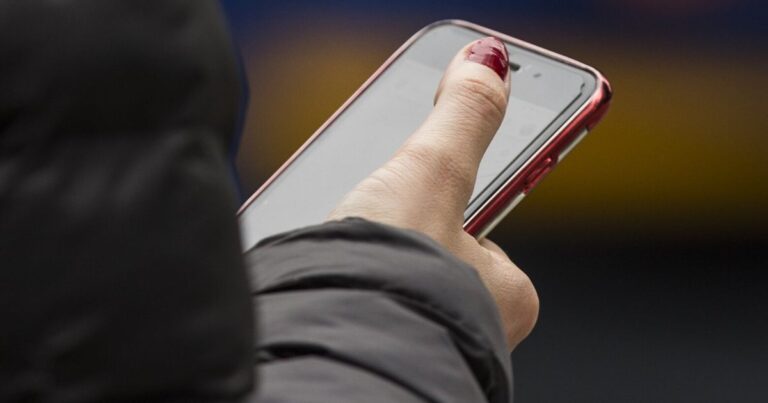A slim majority of Washington state voters think social media platforms should crack down on misinformation and conspiracy theories ahead of the 2024 presidential election, a new state poll finds.
But the data also reveals a wide gulf between Democrats and Republicans on this issue.
SurveyUSA interviewed 801 Washington state voters online from July 10-13, after the first presidential debate and before the assassination attempt on former President Donald Trump. The poll was sponsored by The Seattle Times, KING 5 and the University of Washington Center for Information and Public Affairs. The results have a margin of error of plus or minus 4.6 percentage points.
One survey question asked: “Should social media platforms restrict online content and accounts that share rumors, conspiracy theories, and other misleading information that could undermine confidence in voting in U.S. elections?”
Overall, 57% of respondents agreed that social media platforms should restrict such content, 25% disagreed and 18% said they weren’t sure.
However, a breakdown by party affiliation revealed a huge 30-point gap between Democrats and Republicans on this issue.
A majority of Democrats (71%) felt such content should be restricted by social media companies, while only 41% of Republicans agreed. Independents, not surprisingly, were in the middle at 53%.
Why is there such a big divide between Democrats and Republicans on this issue?
The survey does not have any follow-up questions that could provide any insight, so it is open to interpretation.
The results suggest several things. First, Democrats in Washington seem to see social media as a greater threat to the integrity of elections than Republicans. Republicans also seem to have less trust than Democrats to police content by social media platforms. This may reflect the belief among many conservatives that social media companies have an ideological bias that favors liberal views.
This may have stemmed from perhaps the most famous example of social media censorship: a 2020 New York Post article about the existence of a laptop belonging to then-presidential candidate Joe Biden’s son, Hunter Biden. Twitter and Facebook both restricted users from sharing links to the article, which was suspected to be Russian disinformation. The laptop turned out to be real. Many Republicans viewed the suppression of the article, which may have damaged the Biden campaign, as election interference by social media companies.
The Pew Research Center, which tracks public opinion on social media censorship, found little difference between Democrats and Republicans nationally on the issue in a 2018 survey. About 40% of both groups felt social media platforms should limit misinformation. But a 2023 survey on the same topic found that the share of Democrats in favor of content restrictions had increased to 70%. There was no change among Republicans.
A SurveyUSA poll reveals new public divisions on social media censorship, with younger Washington voters significantly less likely than older voters to support restricting misleading information.
Just under half (48%) of voters ages 18-34 feel that social media platforms should limit misleading information, with this percentage increasing as the age group gets older. Among voters ages 65 and older, 69% agree that social media companies should censor this type of content.
Additionally, Washingtonians with higher incomes and those with college degrees were more likely to support such restrictions by social media platforms than lower-income residents and those without college degrees.

